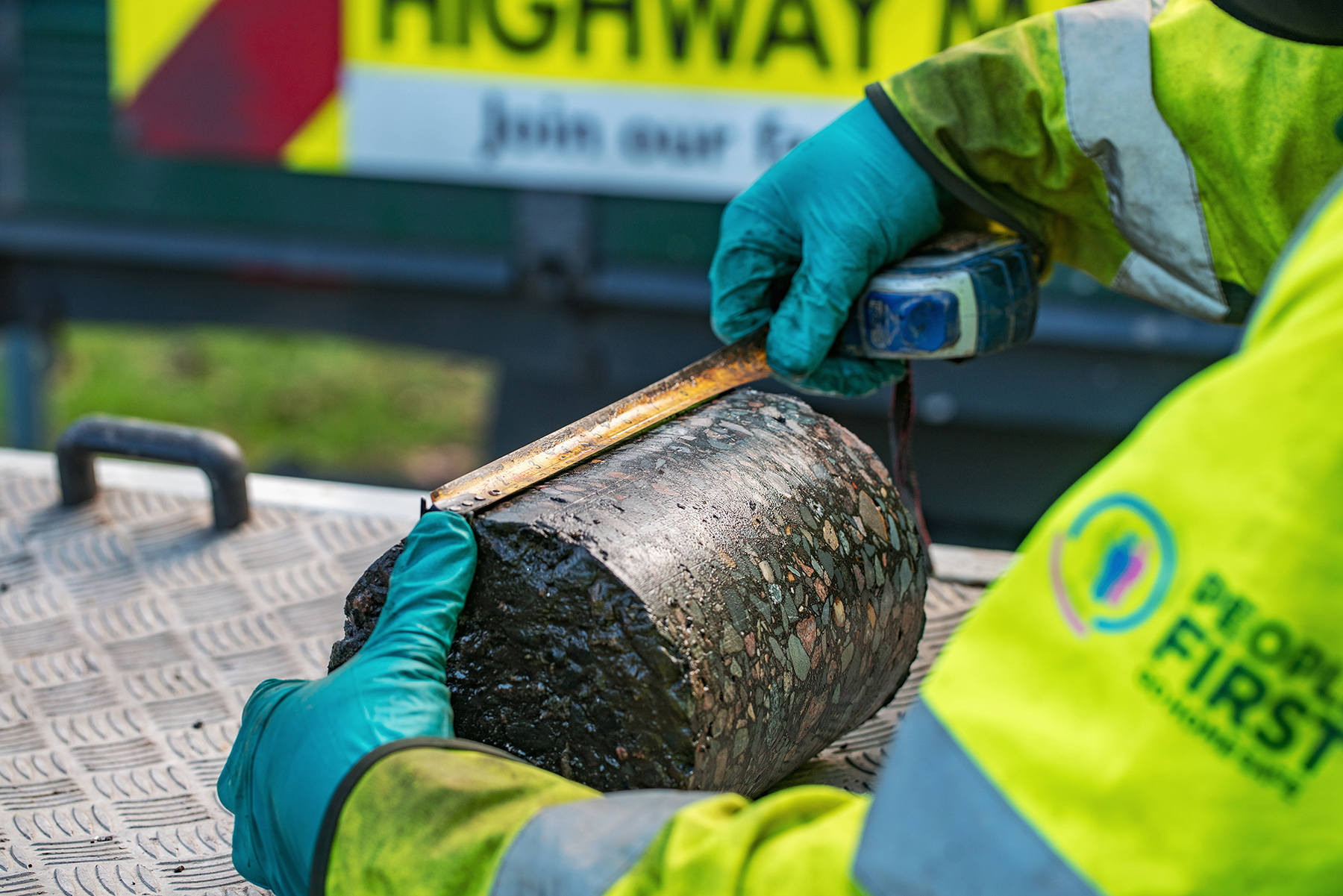

Sustainable travel isn’t just about the vehicles we use or the fuel they consume, it starts with the materials beneath the wheels. Extending maintenance cycles and reusing asphalt are two powerful ways we can cut carbon, conserve resources and make transport more sustainable from the ground up.
Join other savvy professionals just like you at CIHT. We are committed to fulfilling your professional development needs throughout your career
By Matt Tallon, Sustainability Director at FM Conway
When we talk about sustainable transport, the conversation often begins with adopting cleaner fuels or encouraging active travel. But true sustainability starts much earlier, in the materials and methods we use to build and maintain our roads.
If we want to reduce emissions and waste across the sector, we must start by rethinking how we design, construct and manage our road network – embracing circular models of materials use as standard and focusing on long-term performance.

The CIHT’s own recommendations, published in June 2025, explain the need to rapidly reduce carbon emissions in transport, particularly noting those associated with construction and maintenance. If we want to make our highways more sustainable, then we need to maintain them less. That doesn’t mean letting their condition deteriorate with a backlog of repairs building up. Rather it’s about designing roads right in the first place, so that they can cope better with the different stresses and strains likely to be put upon them.
People often say prevention is better than a cure, and in this case, it is certainly true. Road networks that are built to last don’t just save money in the long run – they save carbon and materials too. The Minister for the Future of Roads, Lilian Greenwood MP, has rightly recognised the need for a longer-term approach to highways maintenance. Hopefully this will follow through into giving local authorities the tools and funding to allow them to plan ahead and to invest in the materials and innovations that will boost performance.
Polymer Modified Bitumen (PMB) is a good example, providing the elasticity required to prevent cracking and the likelihood of potholes forming, thereby extending the life of road surfaces and cutting the frequency of repairs.
This is especially important as electric vehicles (EVs) become more common. While EVs are a cornerstone of sustainable travel, with almost 2,000 fully electric buses already transporting people throughout London, they are also heavier than their petrol or diesel counterparts which means they put a greater strain on road surfaces. This impact is compounded by climate change, making average and peak road temperatures warmer, with increased rainfall also set to bring challenges.
PMBs offer a resilient solution. They can be laid as thin as 70mm without the need for the traditional method involving two layers of surfacing materials. This not only reduces material use but also eliminates the risk of layers separating, which can accelerate damage. The result is a more durable road that can better withstand the pressures of modern traffic and a changing climate. However, even the best laid roads will eventually need maintenance. When that time comes, sustainability must remain front and centre.

A truly sustainable road network doesn’t just rely on new materials – it makes the most of what we already have. That’s why the Government’s upcoming Circular Economy Strategy is so timely. Building on the work of its Circular Economy Taskforce, the strategy identifies transport as one of five priority sectors. This focus is well placed.
We have a unique opportunity in highways to be circular economy pioneers because asphalt is 100 per cent recyclable, with almost two billion tonnes of it available for reuse throughout the UK’s road network. Yet, despite recycling becoming more common, this fully reusable material is still an underutilised resource.
We’ve long pushed for the greater use of recycled asphalt product (RAP) at FM Conway. We’ve seen the business benefits of this approach as well as the environmental advantages, and RAP is central to our self-delivery model. However, there is still some resistance to ramping up the recycled content of our roads. This reluctance to go higher is misplaced. We have the data and the evidence to show that high-recycled content asphalt works and we’ve been fortunate to partner with forward-thinking clients who share our vision. Two years ago, we delivered a new surface on a London carriageway containing 92% recycled materials, the highest percentage ever used on a UK road.
Sustainable travel is about more than just the vehicles we use. It’s about the materials we choose, the way we build, and the decisions we make from day one. By prioritising longer maintenance cycles, smarter resource use and waste reduction, we can make low-carbon construction the norm, not the exception.
FM Conway is a leading infrastructure services company. We inspect, design, build, enhance and maintain essential infrastructure services for the public sector and community.
With over 60 years’ experience, we pride ourselves on being an industry leader and innovator, especially in recycling and reuse. We have a network of asphalt and aggregate recycling manufacturing plants serving London and the wider regions throughout the UK, as well as a Thames-side wharf and our own research and development laboratory.
We recycle 98% of highway arisings, including kerbs, paving and concrete and we have the ability to produce asphalt with a high recycled content and a low carbon footprint.
We are British Standards Institute (BSI) PAS 2080:2030 certified for management and reduction of whole-life carbon in infrastructure and the built environment. We are a member of the British Safety Council, the Civil Engineering Contractors’ Association, and the Quarry Products Association, as well as being BSI registered for environmental and quality management.
Please visit www.fmconway.co.uk
Join other savvy professionals just like you at CIHT. We are committed to fulfilling your professional development needs throughout your career
{{item.AuthorName}} {{item.AuthorName}} says on {{item.DateFormattedString}}: